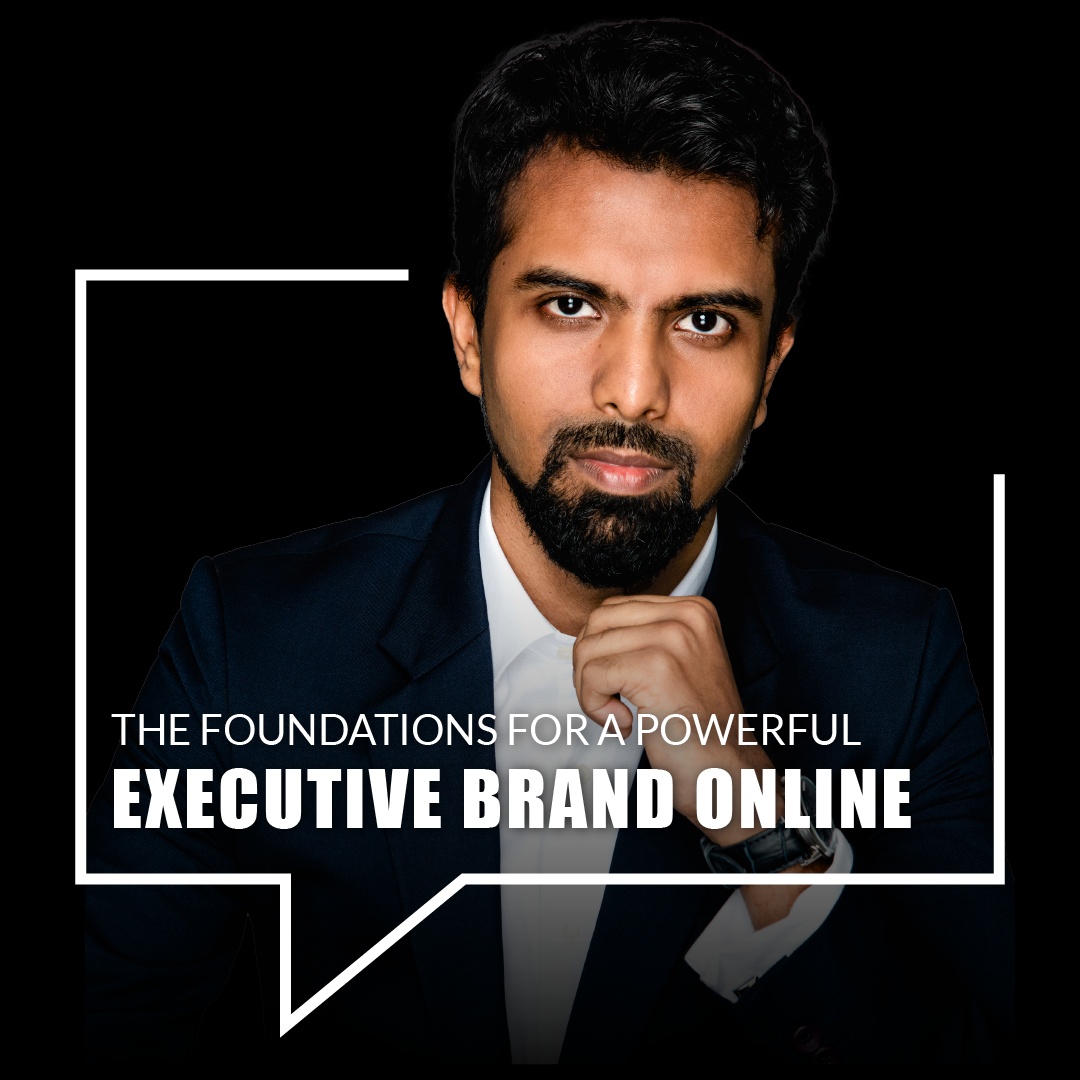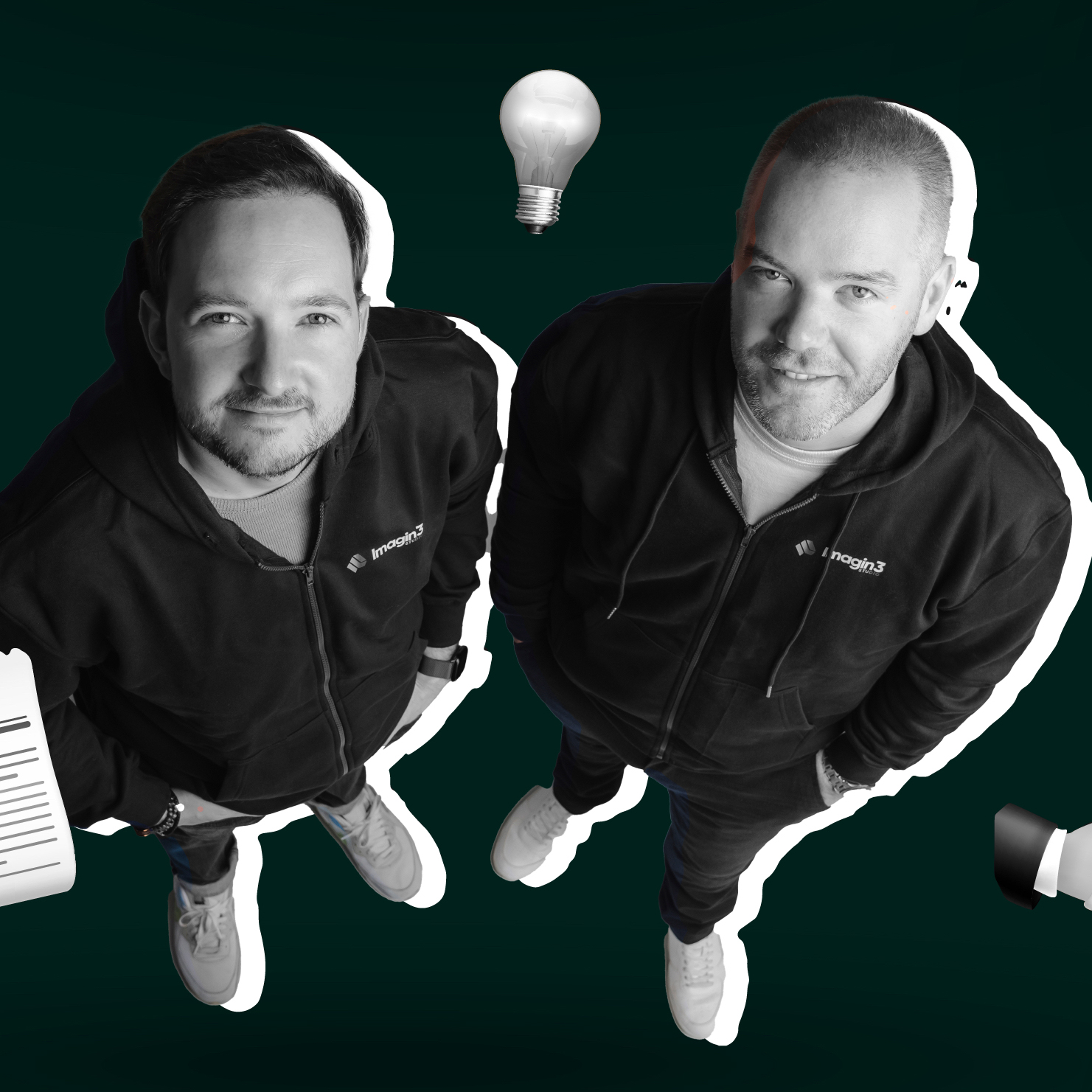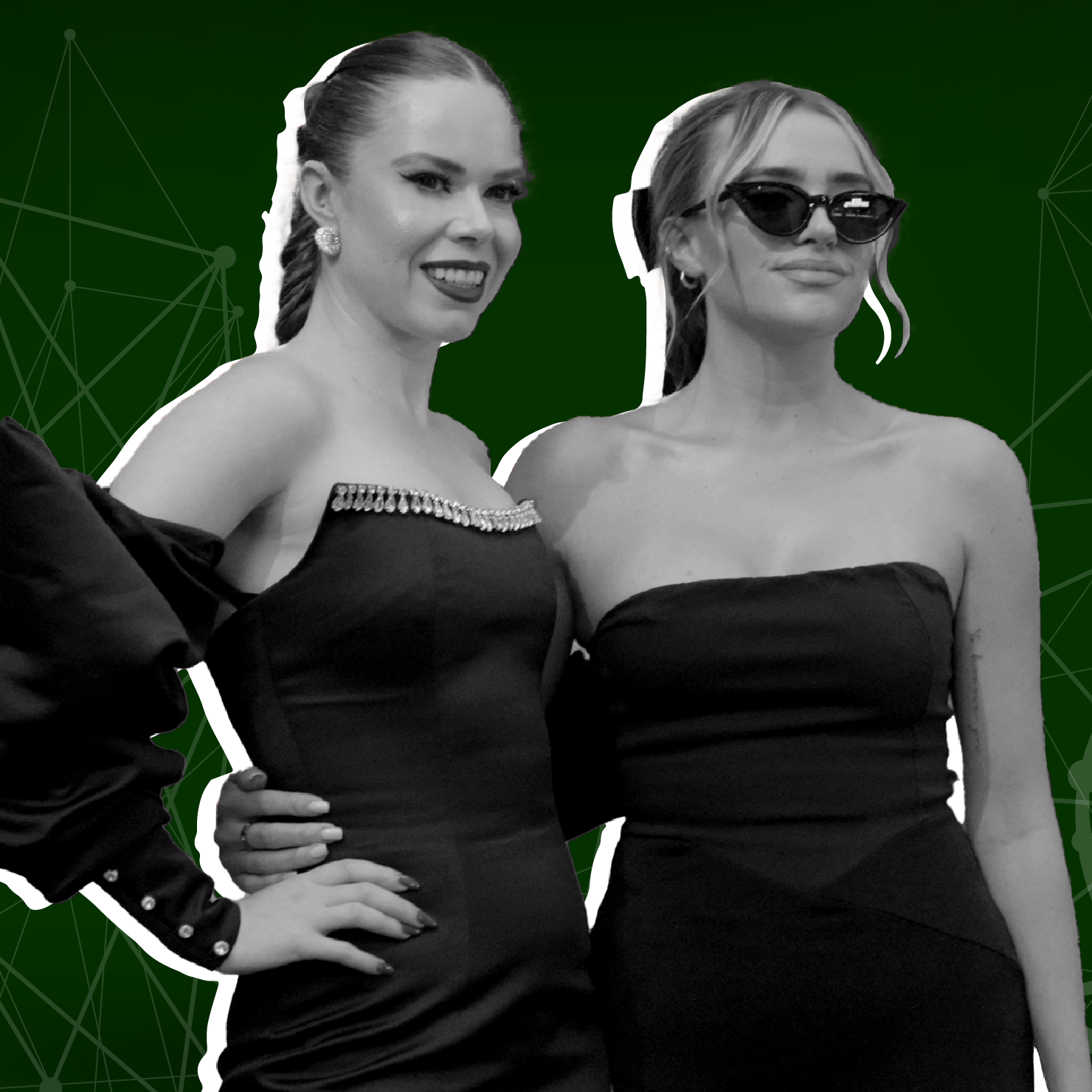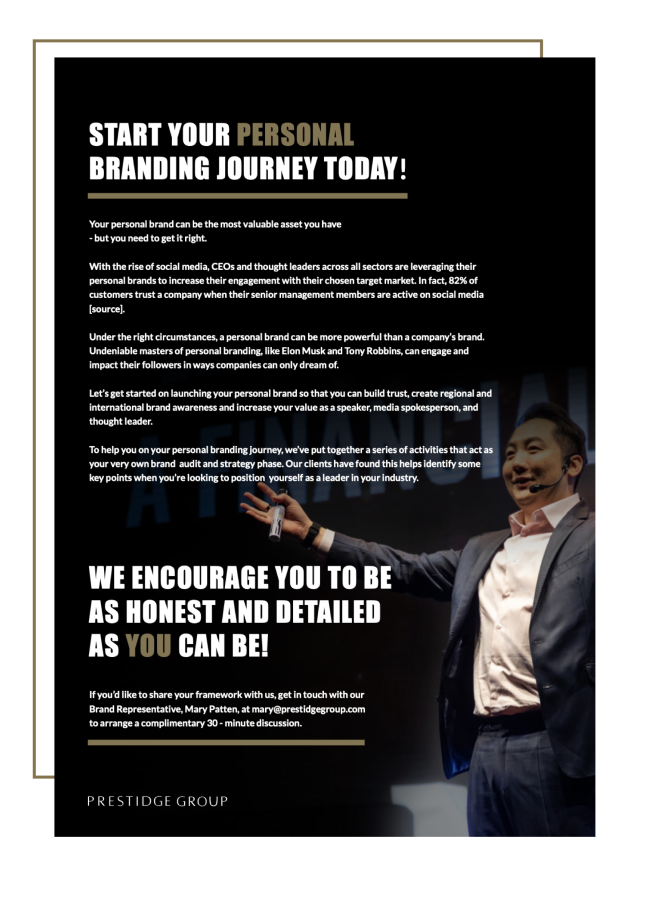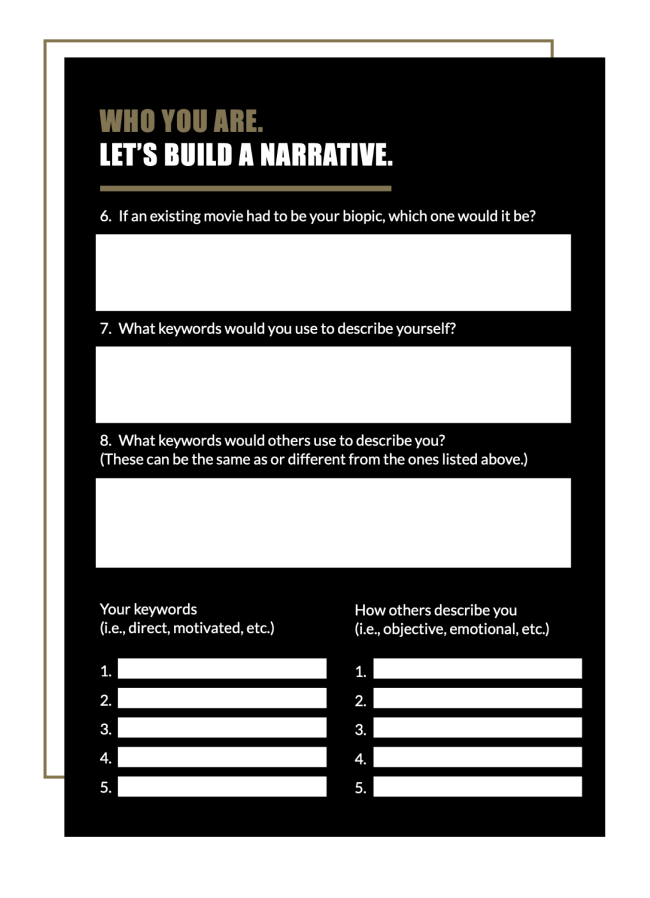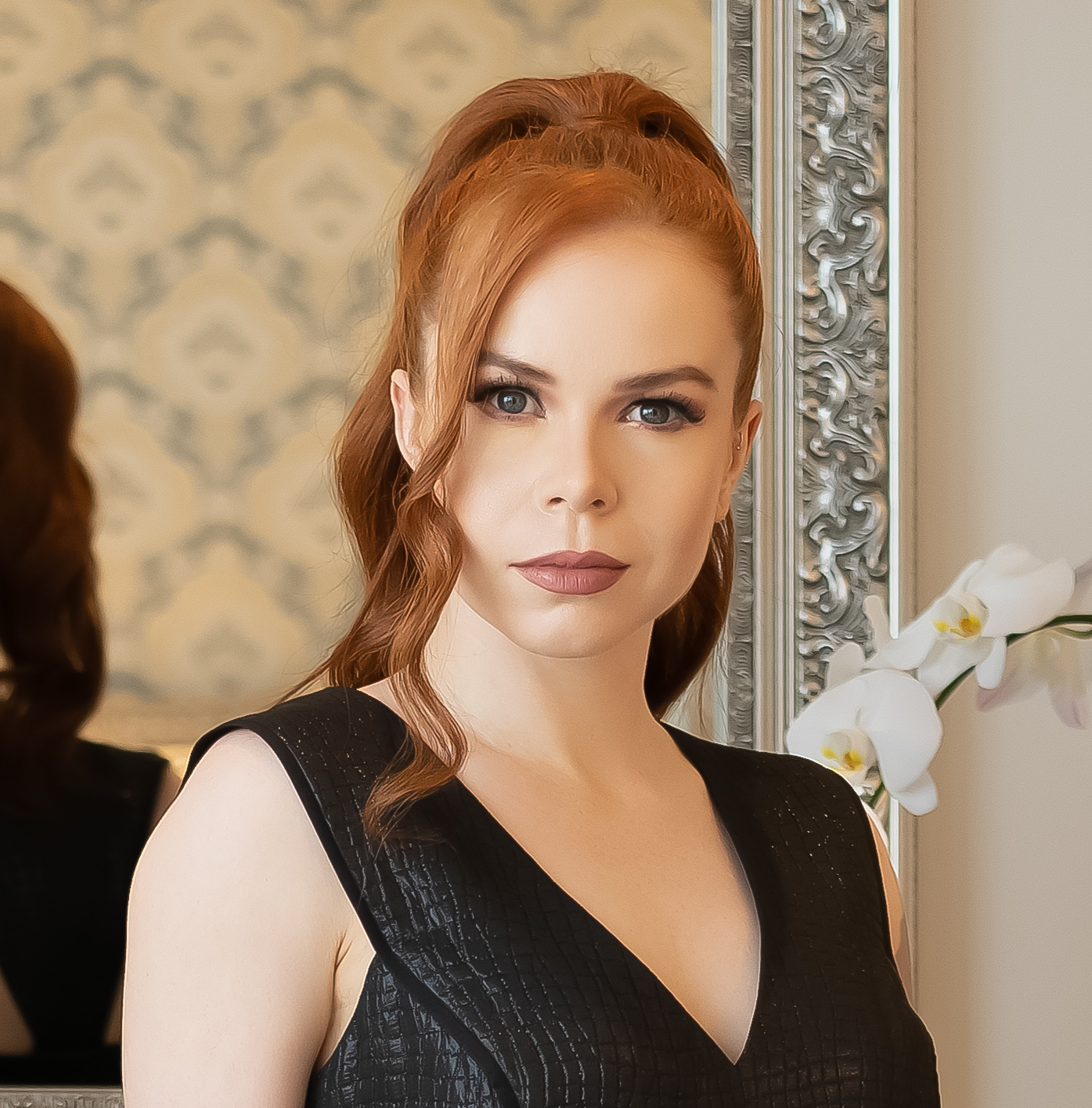Warren Buffett. Mark Zuckerberg. Robert Iger. Julie Sweet. James Dimon. Mary Teresa Barra. These CEOs have become household names and have built personal brands that extend beyond the companies they lead. Indeed, all of them are recently ranked as among the world’s most influential CEOs of 2023. They have millions of followers on social media and are regularly asked to comment on top business issues that go far beyond the company brands they represent.
Given the influence of social media and that both Millennial and Gen Z consumers and employees regularly state that they mostly buy products from or work for brands that they feel share their values, it’s more important than ever that CEOs develop a personal brand that demonstrates who they are, what issues and causes they support, and showcases them as thought-leaders in their respectful industry or field.
The bottom line: the evolving nature of business, technological advancements, and the shift towards a more interconnected world have made personal branding increasingly relevant for executives in today’s landscape.
Find the time to develop your executive brand
As a CEO, you are constantly pulled in multiple directions at once, so if the idea of devoting time and resources to building your personal brand fills you with dread, it’s a relatively common response.
But with approximately 4.9 billion social media users today, you already have a personal brand whether you know it or not. Shareholders, colleagues, current and former employees, executives you’ve built strategic partnerships with, that guy you used to play soccer with in high school, even the friends of your children all hold various perceptions about you and few are afraid to express them online. Rather than have others define your brand for you, it is far better to be proactive and take control of that brand to ensure it reflects accurately and in authentic ways as possible.
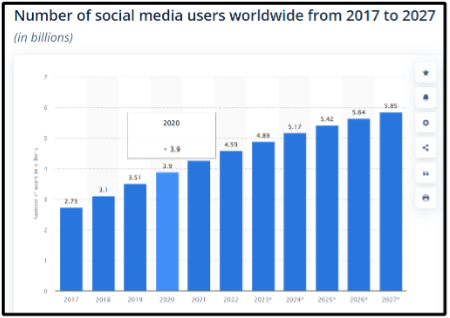
Benefits of executive branding: a case study on driving business growth
A compelling personal brand can positively impact an organization’s bottom line as well as its customers and shareholders. Let’s look at a case study of a CEO of a leading automotive company in the Middle East who sought to build his executive brand.
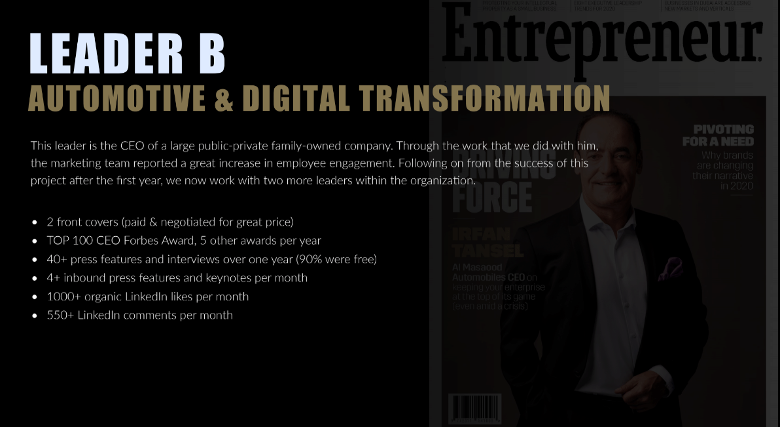
The CEO hired us to help him build his person brand to bring a more human touch to the company’s image by sharing his unique insights on the industry and allowing his target audiences get to know him better.
We were tasked with building his brand by crafting content that resonated with his values, ideas, and expertise, pitching him to the media as a noted thought leader, and providing community management of his LinkedIn and Twitter accounts to help build followers and engagement by identifying social media users who have an interest in automotive issues and the challenges of running a company. We worked diligently to establish his online credibility and trust, thereby solidifying the company’s reputation as a trustworthy employer brand.
Within 24 months::
- Twice named a Top 100 CEO by Forbes Middle East
- Realized a 5X increase in online traffic to the company’s social media channels
- He appeared on two front covers of trade magazines
- Secured 40+ press features and interviews
- Personal posts received 1000+ organic likes per month
This leader’s executive brand enabled him to promote his ideas and create a sense of excitement around the company projects that resulted in increased market capitalization and a devoted customer base. All at a fraction of the cost associated with company advertising and brand promotion.
Benefits of a strong personal brand
Below is a list of some of the additional benefits an effective executive brand offers.
- Crisis Management and Reputation Repair: Executives who have built a strong personal brand often have an advantage when navigating times of crisis. While the internet has enabled worldwide knowledge and transparent information, it has also enabled rumors, fake news, and bad buzz to travel globally in a minute. With a personal brand, you can easily maintain a positive public image worldwide and clean a controversy around your personal branding online..
- Attracting Top Talent: Employer branding has become a critical aspect in attracting and engaging job seekers. Executives with strong personal brands have a higher likelihood of attracting and retaining exceptional talent. When professionals recognize a leader’s reputation and personal values, they are more inclined to join their team and align themselves with their vision. The case of Richard Branson, founder of the Virgin Group, exemplifies this. Branson’s charismatic and adventurous personal brand has not only attracted top talent but also fostered a sense of purpose and adventure within his organizations.
- Enhancing Credibility and Influence: Executive branding allows leaders to establish themselves as industry authorities, building credibility and influence both within their organizations and in the broader business community. An executive can transform the perception of the company by showcasing his own leadership style, vision, and commitment to innovation. An executive brand will definitely help shape an organization’s reputation and contribute to its resurgence in the market.
Finding the time to develop your executive brand
As a CEO, you are constantly pulled in multiple directions at once, so if the idea of devoting time and resources to building your personal brand fills you with dread, it’s a relatively common response.
But with approximately 4.9 billion social media users today, you already have a personal brand whether you know it or not. Shareholders, colleagues, current and former employees, executives you’ve built strategic partnerships with, that guy you used to play soccer with in high school, even the friends of your children all hold various perceptions about you and few are afraid to express them online. Rather than have others define your brand for you, it is far better to be proactive and take control of that brand to ensure it reflects accurately and in authentic ways as possible.
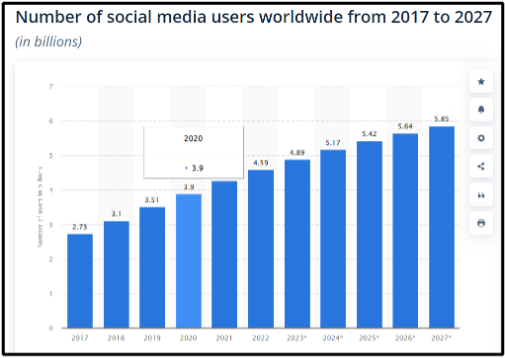
Building a successful personal brand requires strategic planning that includes a mix of both owned and earned content activities, the development of a monthly content calendar to determine what messages and stories you wish to share with followers, the creation and distribution of that content, community management and curation of your social media channels, patience and persistence.
You also have to determine exactly how much time you have each week to devote to executive branding activities, including thought-leadership. If you are going to do all the work yourself, you likely will need to commit at least 8-10 hours a week to this ongoing project. That’s why many CEOs opt to collaborate with a personal branding agency which can do most of the heavy lifting for you. At Prestidge Group, we ask that clients meet with us monthly to brainstorm and discuss content ideas and to allocate time to review and approve that content once our team creates it.
Clients also have to make themselves available to participate in media interviews, podcasts or speaking engagements that we secure on their behalf. All told, if you work with an established executive branding agency, most executives probably don’t spend more than five to six hours a month on personal branding activities.
As an executive, you can harness the power of personal branding to achieve remarkable success. While often associated with influencers, personal branding holds immense value for executives. As the face of your organizations, if you cultivate a strong personal brand, you can enhance your credibility, influence, and overall impact.

